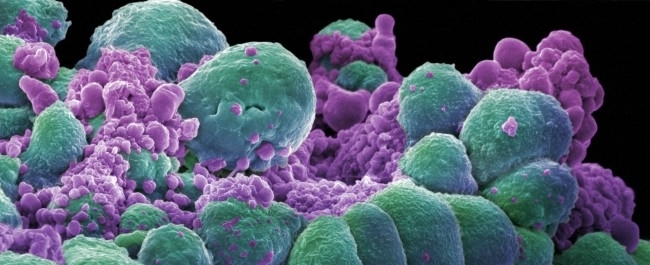Integrative Cancer Epidemiology Programme
Around 1 in 2 people in the UK will be diagnosed with cancer in their lifetime, despite an estimated 40% of cancers being potentially preventable. However, the evidence base around the carcinogenic role of modifiable lifestyle and environmental factors is largely observational and subject to bias. Further, global and temporal variation in cancer incidence and mortality suggest that new risk and prognostic factors are yet to be discovered.
ICEP uses cutting-edge statistical methods and genetic data (including data on gene products such as proteins, and chemical alterations to genes such as DNA methylation) on tens to hundreds of thousands of people to provide high quality evidence on:
- the causes of cancers
- factors influencing cancer progression
- new ways to predict who will develop or die from cancers
- new ways to prevent cancer and its progression, including behavioural and therapeutic interventions
This knowledge will contribute towards new interventions to prevent, detect early and treat cancers, as well targeting prevention measures and treatments to those most at risk.
Our programme focuses on cancers that are common, present late or have poor survival rates, including bowel (colorectum), brain (glioma), breast, head and neck, kidney, lung, ovarian, pancreatic and prostate cancers.
PhD studentships available
We have no studentships available at present. If you have secured your own funding please get in touch to discuss a suitable project.
News
- Cancer research labs at Southmead Hospital 6 April 2023
- Professor Richard Martin interviewed by PLOS blog 15 March 2023
- Roundtable brings cancer research to the Bristol public 8 February 2023
Policy report
Key findings from ICEP (2015-2020): The Causes of Cancer (PDF, 3,106kB)
ICEP on film
Click here for more ICEP videos and animations on YouTube.



